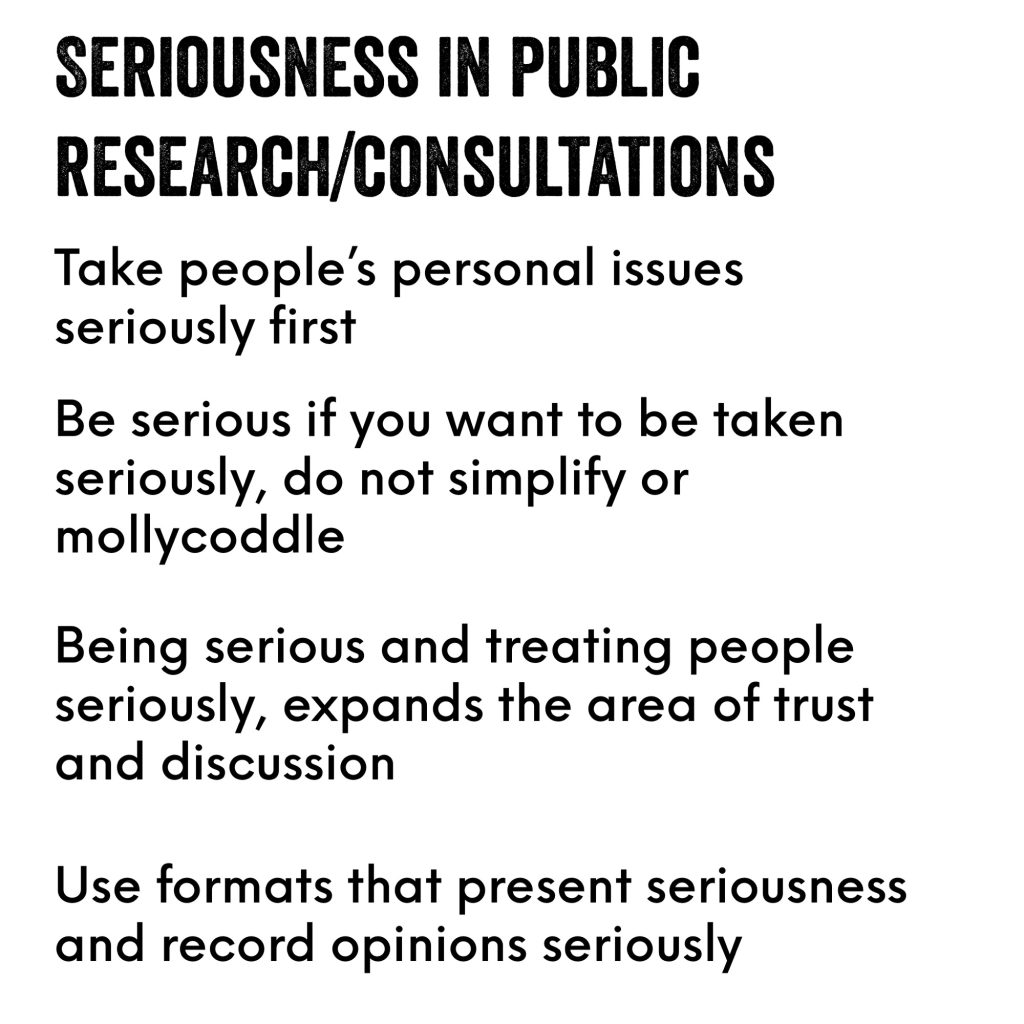
I use a lot of play and experiential activities in workshops I design and facilitate but seriousness has come up lately in public consultation and civic assembly work.
I think it’s because, unlike codesign or participatory design, there is no specific lived/living experience element to this work.
Everyone is in the room because they are, simply, human.
The generosity of experts
Seriousness acts as a foundation and a way of expanding a space for discussion. The generosity of experts in being technical, deep and serious helps everyone.
It anchors discussions to a shared idea of exploring hard and complex issues together.
Play and simplicity are not helpful techniques when it comes to helping people feel they are being taken seriously in the debate of serious issues. The public respect and self respect needed is based in that sense of the serious.
The seriousness of other people’s lives
One other thing is the importance of recognising what people take seriously themselves. What they bring into the room at the start. Those issues need to be heard or else they cannot release them and clear attention and cognition to consider more things.
I am reading feedback where those personal issues keep pulling a person back to something they take seriously. They need a time to both hear themself speak of it and feel that it has been heard by people who represent institutions with power.
There needs to be some time at the start to hear those things or else the session never truly starts.
We must not rush people into the things we worry about without recognising and respecting what they worry about.
Serious formats
Finally there are a couple of ways in which the format of workshop materials affect the way in which the debate happens and the consequences of the discussions.
Firstly, provide material in a way that treats people as serious people. Use good quality paper and well laid out documents. If people sense that they are being held in meaningful regard then they act more meaningfully.
Secondly, recognise how the feedback mechanism works. In two projects I’m facilitating now we are using a sequence of postcards that enable responses to a series of questions. We also offer spoken interviews to people who are not comfortable with writing. However, what this mechanism is mostly about is how workshop feedback needs to be in a format that is taken seriously. I know of projects using video and 3d modelling as feedback mechanisms. This novelty sadly encounters the simple fact that power still only recognises text as meaningful. Everything is flattened into a PDF report. Capturing people’s words on postcards is a way of maintaining their sense of meaning and directly linking it to people with power and privilege.